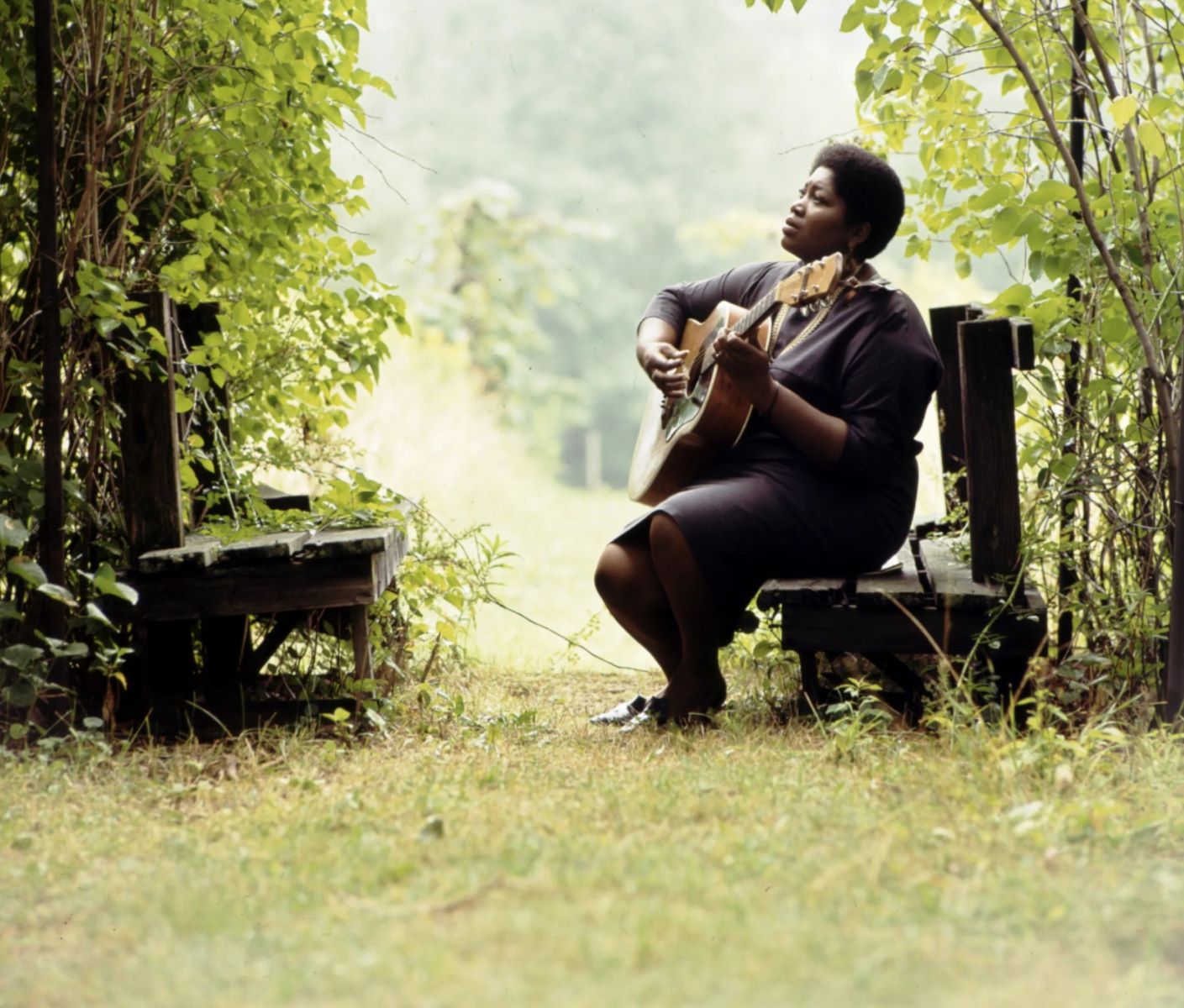Home>Production & Technology>Musician>How To Be A Freelance Musician


Musician
How To Be A Freelance Musician
Published: January 27, 2024
Become a successful freelance musician and learn how to make a living doing what you love. Boost your career as a musician and explore endless opportunities in the music industry.
(Many of the links in this article redirect to a specific reviewed product. Your purchase of these products through affiliate links helps to generate commission for AudioLover.com, at no extra cost. Learn more)
Table of Contents
- Introduction
- Getting Started as a Freelance Musician
- Building and Managing Your Portfolio
- Promoting Yourself as a Freelance Musician
- Finding and Securing Gigs
- Navigating the Business Side of Freelance Music
- Networking and Collaborating with Other Musicians
- Balancing Freelance Musicianship with Other Commitments
- Overcoming Challenges and Maintaining Success
- Conclusion
Introduction
Being a freelance musician can be an incredibly rewarding career path. Not only do you have the opportunity to showcase your musical talents, but you also have the freedom to choose the gigs and projects that align with your artistic vision. Whether you’re a singer, instrumentalist, or both, freelancing in the music industry allows you to have full control over your artistic expression and individual style.
In this article, we will explore the ins and outs of becoming a successful freelance musician. From building a strong portfolio to securing gigs and navigating the business side of the industry, we’ll cover everything you need to know to kickstart your career as a freelance musician.
While freelance musicianship offers many advantages, it also comes with its challenges. From finding consistent work to managing multiple projects, being a freelance musician requires dedication, perseverance, and excellent time management skills. But fear not! With the right mindset, strategies, and a passion for music, you can create a fulfilling and sustainable career as a freelance musician.
In the following sections, we will delve deeper into specific aspects of freelancing in the music industry. We will discuss how to build and manage your portfolio, promote yourself effectively, find and secure gigs, navigate the business aspects of freelancing, as well as the importance of networking and collaboration with other musicians. We will also explore the art of balancing freelancing with other commitments and highlight some of the common challenges faced by freelance musicians.
So, whether you’re a seasoned musician looking to branch out into the freelance world or a beginner eager to carve your own path in the industry, read on to discover the key steps and strategies to become a successful freelance musician.
Getting Started as a Freelance Musician
Embarking on a career as a freelance musician can be an exciting and fulfilling journey. But where do you start? Here are some essential steps to take when getting started as a freelance musician:
- Define Your Specialization: Determine your musical niche and the type of gigs and projects you want to pursue. Are you a vocalist, instrumentalist, or both? Do you specialize in a specific genre or style? Identifying your specialization will help you target and attract the right opportunities.
- Build Your Skillset: Continuously hone your musical skills and expand your repertoire. Take lessons, attend workshops, and practice regularly to improve your technique and musicality. The more versatile and skilled you are, the more opportunities you can pursue.
- Create a Professional Portfolio: As a freelance musician, having a compelling portfolio is crucial. Include recordings of your performances, photos, and any relevant credentials or certifications. Consider creating a website or using online platforms to showcase your work and make it easily accessible to potential clients.
- Set Your Rates: Determine your pricing structure based on factors such as experience, demand, and the scope of the gig or project. Research industry standards and compare rates of other freelance musicians to ensure your prices are competitive and reasonable.
- Network and Collaborate: Connect with fellow musicians, producers, managers, and industry professionals. Attend music events, join online communities, and seek collaboration opportunities. Building a strong network can open doors to new gigs and collaborations.
- Market Yourself: Create a strong personal brand and market yourself effectively. Develop a compelling bio, professional social media profiles, and use online platforms to showcase your expertise and engage with potential clients. Utilize SEO techniques to improve your online visibility and attract targeted audiences.
- Seek Feedback and Growth: Be open to feedback and continuously strive for improvement. Seek constructive criticism from peers, mentors, and clients to enhance your skills and refine your performances. Embrace a growth mindset and be willing to adapt to industry trends and demands.
Remember, getting started as a freelance musician requires patience, persistence, and dedication. It may take time to build your reputation and client base, but with passion and perseverance, you can establish a successful and fulfilling career as a freelance musician.
Building and Managing Your Portfolio
As a freelance musician, your portfolio is a vital tool for showcasing your talent, experience, and versatility. It serves as a visual representation of your skills and helps potential clients understand what you bring to the table. Here’s how you can effectively build and manage your portfolio:
- Select Your Best Work: Carefully curate your portfolio to include your best performances and recordings. Choose pieces that showcase your range, technique, and musicality. Variety is key, so include pieces from different genres and styles to demonstrate your versatility.
- Create a Demo Reel or Highlight Compilation: Compile a selection of your best performances into a demo reel or highlight compilation. This can be in audio or video format, depending on your area of expertise. Keep it concise and engaging, showcasing different aspects of your skills and musical style.
- Showcase Live Performances: If you have footage or recordings from live performances, include them in your portfolio. This allows potential clients to see how you engage with an audience and perform in a live setting. Highlight any exceptional moments or unique experiences to make yourself stand out.
- Include Testimonials and Reviews: Client testimonials and positive reviews can greatly enhance your portfolio’s credibility. Reach out to previous clients and ask for their feedback and permission to include their testimonials. Highlight specific details about your professionalism, skill, and ability to deliver an exceptional musical experience.
- Keep Your Portfolio Updated: Regularly update your portfolio with new recordings, performances, and testimonials. This shows that you are actively involved in your musical career and constantly seeking new opportunities to grow and develop. Remove outdated or less relevant content to keep your portfolio fresh and focused.
- Utilize Online Platforms: In addition to having a physical portfolio, consider using online platforms to showcase your work. Create a professional website or utilize platforms like SoundCloud, YouTube, or Bandcamp to share your music. This makes it easier for potential clients to discover and evaluate your talent.
- Seek Feedback and Collaborate: Get feedback on your portfolio from trusted peers, mentors, or industry professionals. They can provide valuable insights and suggestions for improvement. Additionally, consider collaborating with other musicians to expand your portfolio and showcase your ability to work well in a team setting.
A well-built and carefully managed portfolio is essential for showcasing your talent and landing gigs as a freelance musician. Remember to regularly update and refine your portfolio to reflect your growth and to make a strong impression on potential clients.
Promoting Yourself as a Freelance Musician
As a freelance musician, promoting yourself effectively is crucial to attract clients and secure gigs. Building a strong personal brand and utilizing various marketing strategies can help you stand out from the competition and increase your visibility in the industry. Here are some ways to promote yourself as a freelance musician:
- Create a Compelling Bio: Craft a well-written and engaging bio that highlights your musical background, accomplishments, and unique style. This can be used on your website, social media profiles, and when pitching to potential clients. Make sure to tailor your bio to the specific audience or gig you are targeting.
- Utilize Social Media: Establish a strong presence on social media platforms relevant to the music industry, such as Instagram, Facebook, and Twitter. Share updates on your performances, behind-the-scenes content, and engage with your audience. Use hashtags and tags to increase your reach and connect with potential clients and collaborators.
- Create Engaging Content: In addition to promotional posts, create engaging and informative content related to music. This could include tutorial videos, performance tips, and interesting anecdotes. By providing value to your audience, you can establish yourself as an authority in your field and attract a dedicated following.
- Collaborate with Other Musicians: Collaborating with fellow musicians can help you expand your network and reach new audiences. Consider collaborating on projects, performing together, or even creating joint marketing materials. This allows you to tap into each other’s fan base and gain exposure to a wider audience.
- Participate in Music Competitions or Festivals: Enter music competitions or submit your work to music festivals and talent showcases. This can provide valuable opportunities to perform in front of industry professionals and gain recognition. Even if you don’t win, the exposure can still lead to future gigs and connections.
- Engage with Local Music Communities: Get involved in local music communities by attending events, networking with other musicians, and volunteering for music-related organizations. By actively participating, you can build connections, gain industry insights, and be on the radar of potential clients or collaborators.
- Invest in Professional Branding: Develop a cohesive and visually appealing brand that reflects your musical style. This includes designing a professional logo, choosing a consistent color palette, and creating visually appealing promotional materials. A strong brand presence can leave a lasting impression on potential clients.
- Ask for Referrals: Satisfied clients can be your biggest advocates. Don’t hesitate to ask for referrals or testimonials from previous clients. Word-of-mouth recommendations can go a long way in attracting new clients and building trust in your services.
Promoting yourself as a freelance musician requires consistent effort, creativity, and a strategic approach. By utilizing various marketing channels and showcasing your unique talents, you can increase your visibility, attract clients, and build a successful career in the freelance music industry.
Finding and Securing Gigs
Finding and securing gigs is a critical aspect of being a freelance musician. It’s important to have a proactive approach to ensure a steady stream of opportunities. Here are some strategies to help you find and secure gigs:
- Research and Connect with Venues: Research local venues, such as bars, cafés, restaurants, and event spaces that regularly host live music. Reach out to them directly to inquire about gig opportunities. Provide them with your portfolio and demonstrate your suitability for their venue style and audience.
- Network with Event Organizers and Promoters: Attend local music events, open mics, and industry meetups to network with event organizers and promoters. Introduce yourself, exchange contact information, and express your interest in performing at their events. Building relationships with these professionals can lead to future gig opportunities.
- Join Musician Directories and Online Platforms: Register on musician directories and online platforms specifically designed for connecting musicians with gig opportunities. Websites like GigSalad, BandMix, and Sonicbids allow you to showcase your profile, receive gig invitations, and connect with event planners and talent scouts.
- Collaborate with Booking Agents: Consider working with booking agents or talent agencies specializing in promoting freelance musicians. These professionals have existing connections with venues and event organizers, increasing your chances of securing gigs. Collaborate closely with them, providing them with up-to-date information and material to represent you effectively.
- Promote Yourself Locally: Advertise your services locally through flyers, posters, and community notice boards. Take advantage of local newspapers, radio stations, and online platforms with event listings to announce your availability for gigs. Participate in community events and offer to perform for local charities or fundraisers, gaining exposure and showcasing your talent.
- Collaborate with Other Artists: Reach out to other musicians, bands, or artists in your area for potential collaborations. By performing together, you can share gig opportunities and cross-promote each other’s work. Consider forming a collective or band that performs regularly, increasing your chances of securing gigs as a group.
- Be Flexible with Your Genre and Style: While it’s important to have a musical style that showcases your strengths, be open to exploring different genres and styles. This flexibility increases your options for gig opportunities, as you can adapt your repertoire to suit different venues and events.
- Pitch Your Services for Special Events: Identify special events, such as weddings, corporate gatherings, and private parties, that require live music. Offer your services as a freelance musician for these occasions. Prepare a tailored pitch highlighting how your music can enhance the atmosphere and provide a memorable experience for attendees.
Finding and securing gigs as a freelance musician requires persistence, networking, and a proactive approach. By utilizing various strategies and staying engaged with the local music scene, you can increase your chances of finding exciting gig opportunities that align with your musical goals.
Navigating the Business Side of Freelance Music
Being a freelance musician involves more than just performing and creating music. It also requires navigating the business side of the industry. Understanding the key aspects of the music business will help you maintain professionalism, protect your interests, and ensure a successful freelance career. Here are some important considerations:
- Legal Considerations: Familiarize yourself with the legal aspects of being a freelance musician. Understand contracts, copyright laws, and licensing requirements. It’s essential to protect your intellectual property and ensure you have the necessary permissions for any recordings or performances.
- Financial Management: Establish good financial practices to manage your income and expenses. Keep track of your earnings, maintain organized records, and save for taxes. Consider consulting with an accountant or financial advisor to ensure you are properly managing your finances as a freelance musician.
- Project Management: Develop effective project management skills to handle multiple gigs, collaborations, and deadlines. Use calendars, task management tools, and communication platforms to stay organized and ensure smooth workflow. Clear communication and timely delivery are crucial in maintaining a professional reputation.
- Marketing and Branding: Invest time and effort in marketing yourself as a brand. Develop a strong online presence through social media, a professional website, and targeted marketing strategies. Create engaging content, stay active in the music community, and consistently promote your unique musical style and offerings.
- Social Media and Digital Presence: Embrace the opportunities presented by social media and digital platforms. Engage with your audience, share updates, and showcase your work regularly. Use analytics tools to understand your reach, target audience, and engagement metrics to refine your marketing efforts.
- Collaborative Agreements and Contracts: When collaborating with other musicians or industry professionals, establish clear agreements and contracts that outline roles, responsibilities, and rights for all parties involved. Protecting your interests through legally sound agreements helps maintain positive professional relationships.
- Continual Learning and Skill Development: Stay updated with industry trends, new technologies, and musical techniques. Attend workshops, participate in online courses, and engage in continued learning to keep your skills relevant and pave the way for growth in your freelance music career.
- Professional Relationships: Cultivate strong professional relationships with clients, collaborators, and industry contacts. Communicate effectively, be reliable, and deliver exceptional performances. Building a solid reputation and fostering positive relationships can lead to repeat gigs, referrals, and new opportunities.
- Insurance and Liability: Consider obtaining appropriate insurance coverage to protect yourself and your equipment. This may include liability insurance and instrument insurance. Research insurance options specific to freelance musicians and choose the coverage that aligns with your needs.
By understanding and navigating the business side of freelance music, you can position yourself for long-term success. Balancing artistic creativity with sound business practices will not only support your career growth but also ensure a sustainable and rewarding freelance music journey.
Networking and Collaborating with Other Musicians
Networking and collaborating with other musicians are essential aspects of building a successful freelance music career. Engaging with fellow musicians not only helps expand your connections but also opens up opportunities for growth, learning, and creative collaboration. Here’s how you can effectively network and collaborate with other musicians:
- Attend Music Events and Workshops: Make an effort to attend music events, conferences, and workshops in your area. These gatherings provide valuable opportunities to meet and connect with other musicians, industry professionals, and potential collaborators. Exchange contact information, stay in touch, and follow up after the event.
- Join Online Music Communities: Participate in online music communities and forums where musicians share ideas, seek advice, and collaborate on projects. Platforms such as SoundBetter, Kompoz, and Bandmix connect musicians worldwide and allow for virtual collaboration across different genres and styles.
- Offer Your Skills and Services: Volunteer your musical skills for projects or events. This allows you to showcase your talent, build relationships, and expand your network. Whether it’s performing at a charity concert, recording for a fellow musician, or collaborating on a passion project, being open to opportunities can lead to valuable connections.
- Seek Recommendations and Referrals: Don’t hesitate to ask other musicians for recommendations or referrals. They may know of gigs or projects that align with your style and expertise. Likewise, be willing to refer and recommend other musicians when appropriate. This reciprocal support can lead to mutually beneficial collaborations.
- Collaborate on Creative Projects: Collaborating with other musicians on creative projects allows you to blend your musical styles, skills, and ideas. It can lead to unique musical experiences and the opportunity to explore new genres or experiment with different sounds. Collaborative projects can range from recording albums to composing original music together.
- Exchange Musical Ideas and Feedback: Engage in regular conversations and exchanges with fellow musicians to gather feedback on your work and share ideas. This can be done through informal jam sessions, songwriting sessions, or organized meetups. Active participation in these discussions helps foster a sense of musical community and nurtures artistic growth.
- Join or Form a Band: Joining or forming a band can be an effective way to collaborate with other musicians on an ongoing basis. Each band member brings their unique style and expertise, creating a cohesive sound. Regular rehearsals, gigs, and shared responsibilities help build camaraderie and provide opportunities for growth together as a collective.
- Share Resources and Opportunities: Be generous in sharing resources, information, and gig opportunities with fellow musicians. This collaborative mindset strengthens the overall music community and builds goodwill. When you help others succeed, it often leads to reciprocal support and opens doors to new opportunities for yourself.
Remember, networking and collaborating with other musicians is not only about benefiting your own career but also about contributing to the larger musical community. By building strong relationships, engaging in meaningful collaborations, and nurturing a supportive network, you can enhance your music career and create memorable musical experiences.
Balancing Freelance Musicianship with Other Commitments
As a freelance musician, finding a balance between your musical pursuits and other commitments is essential for maintaining your overall well-being and fulfilling your responsibilities. Here are some strategies to help you effectively balance your freelance musicianship with other areas of your life:
- Create a Schedule: Establish a clear and organized schedule that accounts for both your musical activities and other commitments. Prioritize your time and allocate specific blocks for practice, gigs, collaborations, as well as personal and professional obligations. A well-planned schedule helps ensure that all areas of your life receive adequate attention.
- Set Realistic Goals: Define realistic and achievable goals for both your musical career and other aspects of your life. Break down larger goals into smaller, manageable tasks, and establish timelines for completion. This not only helps you stay focused but also prevents overwhelm and ensures that you can fulfill all your commitments.
- Communicate with Others: Open and honest communication with your family, friends, and collaborators is crucial. Inform them of your musical endeavors and upcoming commitments, as well as any potential conflicts or time constraints. By maintaining clear lines of communication, you can seek support, understanding, and ensure that everyone is on the same page.
- Manage Your Energy: Recognize that balancing freelance musicianship and other commitments requires managing your energy effectively. Listen to your body and mind, and make self-care a priority. Get enough rest, engage in activities that rejuvenate you, and practice stress-management techniques. Taking care of yourself helps maintain creativity, focus, and productivity in all areas of your life.
- Delegate and Outsource: It’s okay to delegate or outsource certain tasks to lighten the load. Consider hiring a virtual assistant to handle administrative responsibilities, or collaborate with others who can share the workload. This allows you to focus on the core aspects of your musicianship while still fulfilling other obligations.
- Practice Efficient Time Management: Optimize your time management skills by identifying and eliminating time-wasting activities. Limit distractions, utilize productivity tools, and prioritize tasks to make the most of your designated time slots. By being efficient and disciplined with your time, you can accomplish more in both your musical pursuits and other areas of your life.
- Seek Support and Collaboration: Surround yourself with a supportive network of family, friends, and fellow musicians who understand and appreciate your commitments. Lean on them for emotional support, guidance, and collaboration opportunities. Collaborating with others can help share the workload and provide personal and artistic fulfillment.
- Practice Flexibility and Adaptability: Remain flexible and adaptable in both your musical and personal life. Unexpected changes and challenges are inevitable, so be prepared to adjust your plans and priorities as needed. This flexibility allows you to navigate the ever-changing nature of freelance musicianship without sacrificing other important areas of your life.
Finding and maintaining a balance between freelance musicianship and other commitments requires conscious effort, effective time management, and open communication. By employing these strategies, you can pursue your passion for music while leading a fulfilling and well-rounded life.
Overcoming Challenges and Maintaining Success
As a freelance musician, you will inevitably face challenges along your career journey. It’s important to be prepared for these obstacles and develop strategies to overcome them. Here are some common challenges that freelance musicians encounter and tips for maintaining long-term success:
- Inconsistent Income: The fluctuating nature of gig opportunities can lead to inconsistent income. To mitigate this challenge, create a budget, save during busy periods, and consider diversifying your income streams. Explore teaching, recording, or offering online music lessons as supplementary sources of income.
- Self-Promotion: Many musicians find it challenging to self-promote and market their skills effectively. Invest time in learning marketing techniques, developing a strong online presence, and honing your interpersonal skills. Take advantage of social media platforms, networking events, and collaborations to showcase your talents and expand your reach.
- Competition: The music industry is highly competitive, and standing out can be difficult. Differentiate yourself by developing a unique style, building strong connections, and constantly improving your skills. Embrace collaboration instead of viewing other musicians as rivals, as this can lead to new opportunities and mutual growth.
- Time Management: Balancing multiple commitments and maintaining discipline with your practice schedule can be a challenge. Set specific goals and prioritize your tasks. Use time management techniques such as the Pomodoro Technique or time-blocking to maximize your productivity. Be flexible but consistent in managing your time effectively.
- Rejection and Self-Doubt: Rejection from auditions or gigs and self-doubt are common challenges for musicians. Remember that rejection is a normal part of the industry and does not define your worth as a musician. Stay persistent, learn from each experience, and focus on your growth and improvement. Surround yourself with a support system that uplifts and encourages you.
- Maintaining Inspiration and Creativity: Sustaining inspiration and creativity in a demanding industry can be challenging. Explore different genres, attend concerts, and engage with diverse musical influences to stimulate your creativity. Take regular breaks, practice mindfulness, and embrace hobbies outside of music to fuel your inspiration and maintain a healthy work-life balance.
- Managing Burnout: Freelance musicians often juggle multiple projects simultaneously, leading to burnout. Recognize the signs of burnout and prioritize self-care. Take regular breaks, get sufficient rest, engage in activities that rejuvenate you, and seek support when needed. Setting boundaries and learning to say no to excessive commitments is crucial for maintaining long-term success.
- Continual Learning: In the ever-evolving music industry, staying updated and continually learning is vital. Invest in your musical education through workshops, online courses, and collaborations. Embrace new technologies, trends, and genres to stay relevant. Cultivate a growth mindset, always seeking opportunities for improvement and embracing new challenges.
- Building Resilience: Resilience is key to overcoming challenges and sustaining success. Embrace failures and setbacks as learning opportunities, develop a problem-solving mindset, and bounce back stronger. Surround yourself with a supportive community that uplifts and motivates you during challenging times.
Remember that every challenge you face as a freelance musician presents an opportunity for growth and development. Embrace these challenges, maintain a positive mindset, and stay committed to your passion for music. With perseverance, adaptability, and a proactive mindset, you can overcome obstacles and achieve long-term success as a freelance musician.
Conclusion
Being a freelance musician is an exciting and fulfilling journey that allows you to showcase your artistic talents, pursue your passion for music, and forge your own path in the industry. However, it also requires dedication, perseverance, and the ability to navigate various aspects of the music business. By following the steps and strategies outlined in this article, you can set yourself up for success as a freelance musician.
Starting with defining your specialization and building a strong portfolio, you can effectively promote yourself and attract the right opportunities. Networking and collaborating with other musicians will expand your reach and open doors to new possibilities. Finding and securing gigs is a constant effort that requires research, marketing, and a proactive approach. Navigating the business side of freelancing, such as legal considerations and financial management, ensures professionalism and protection of your interests.
While balancing your freelance musicianship with other commitments can be challenging, effective time management, communication, and self-care will help you maintain a healthy work-life balance. Overcoming obstacles, such as inconsistent income and self-doubt, requires resilience, continuous learning, and maintaining a positive mindset.
Remember, building a successful freelance music career is a journey filled with ups and downs. It’s essential to stay focused on your goals, adapt to changes, and nurture your love for music. By embracing collaboration, staying connected within the music community, and continuously improving your skills, you can thrive as a freelance musician.
As you embark on your freelance music journey, remember that success comes not only from technical proficiency but also from your ability to connect with your audience on an emotional level. Stay passionate, authentic, and dedicated to your craft, and you will not only find fulfillment as a musician but also leave a lasting impact on those who listen to your music.











